

This book is a work of fiction. Names, characters, businesses, organizations, places, events, and incidents either are the product of the authors imagination or are used fictitiously. Any resemblance to actual persons, living or dead, events, or locales is entirely coincidental.
Copyright 2013 by Jim Crace
All rights reserved. Published in the United States by Nan A. Talese / Doubleday, a division of Random House, Inc., New York. Published simultaneously in Great Britain by Picador, an imprint of Pan Macmillan Ltd., London.
www.nanatalese.com
DOUBLEDAY is a registered trademark of Random House, Inc. Nan A. Talese and the colophon are trademarks of Random House, Inc.
Jacket design by Michael J. Windsor
Jacket photographs: smoke Kamira/Shutterstock; wheat Hit Delight/Shutterstock
LIBRARY OF CONGRESS CATALOGING-IN-PUBLICATION DATA
Crace, Jim.
Harvest/Jim Crace. 1st American ed.
p. cm.
I. VillagesEnglandFiction. I. Title.
PR6053.R228H37 2013
823.914dc23
2012026208
eISBN: 978-0-385-53690-5
v3.1
Contents
Happy the man, whose wish and care A few paternal acres bound, Content to breathe his native air In his own ground.
ALEXANDER POPE , ODE ON SOLITUDE
 WO TWISTS OF SMOKE AT a time of year too warm for cottage fires surprise us at first light, or they at least surprise those of us whove not been up to mischief in the dark. Our land is topped and tailed with flames. Beyond the frontier ditches of our fields and in the shelter of our woods, on common ground, where yesterday there wasnt anyone who could give rise to smoke, some newcomers, by the luster of an obliging reapers moon, have put up their hutfour rough and ready walls, a bit of roofand lit the more outlying of these fires. Their fire is damp. They will have thrown on wet greenery in order to procure the blackest plume, and thereby not be missed by us. It rises in a column that hardly bends or thins until it clears the canopies. It says, New neighbors have arrived; theyve built a place; theyve laid a hearth; they know the custom and the law. This first smoke has given them the right to stay. Well see.
WO TWISTS OF SMOKE AT a time of year too warm for cottage fires surprise us at first light, or they at least surprise those of us whove not been up to mischief in the dark. Our land is topped and tailed with flames. Beyond the frontier ditches of our fields and in the shelter of our woods, on common ground, where yesterday there wasnt anyone who could give rise to smoke, some newcomers, by the luster of an obliging reapers moon, have put up their hutfour rough and ready walls, a bit of roofand lit the more outlying of these fires. Their fire is damp. They will have thrown on wet greenery in order to procure the blackest plume, and thereby not be missed by us. It rises in a column that hardly bends or thins until it clears the canopies. It says, New neighbors have arrived; theyve built a place; theyve laid a hearth; they know the custom and the law. This first smoke has given them the right to stay. Well see.
But it is the second twist of gray that calls us close, that has us rushing early from our homes on this rest day toward Master Kents house. From a distance this smoke is pale. No one has added greenery to darken it. But the blaze itself is less faint-hearted. It is rackety. It is a timber fire, for sure. But ancient wood. Long-felled. The years are in its smell. We fear it is the manor house that burns and that we will be blamed for sleeping through. Wed best prepare excuses now. So, if we heard the cracking of its rafters and its beams in our slumbers this morning, we must have mistaken it for the usual busying of trees and wind, or for the toiling of dreams, or for the groaning of our bones. Yesterday was harvest end, the final sheaf. We were expecting to sleep long and late this morning, with heavy shoulders naturally but with buoyant hearts. Our happiness has deafened us, well say. It was only when we heard Willowjack, the masters fancy sorrel mare, protesting at the smoke with such alarm, that we awoke and went to help, as help we must, for no one wants to lose the manor house.
Now that we have reached our masters paddocks and his garths, we can smell and taste the straw. The smoke and flames are coming not from his home but from his hay lofts and his stable roofs. His pretty, painted dovecote has already gone. We expect to spot his home-birds snowy wings against the smoke-gray sky. But there are none.
I know at once whom we should blame. When Christopher and Thomas Derby, our only twins, and Brooker Higgs came back from wooding last evening, they seemed a little too well satisfied, but they werent bringing with them any fowl or rabbit for the pot, or even any fuel. Their only spoils, so far as I could tell, were a bulky, almost weightless sack and immodest fits of laughter. Theyd been mushrooming. And by the looks of them they had already eaten raw some of the fairy caps theyd found. I did the same myself in my first summer of settlement here, a dozen or so years ago, when I was greener and less timid, though not young. I remember eating them. They are beyond forgetting. Just as yesterday, the last sheaf of that years harvest had been cut and stood. And, just as today, wed faced a break from labor, which meant that I could sleep my mischief off. So in the company of John Carr, my new neighbor then, my neighbor still, I went off that afternoon to Thank the Lord for His Munificence by hunting fairy caps in these same woods. Ill not forget the dancing lights, the rippling and the merriment, the halos and the melting trails that followed anything that moved, the enormous fearlessness I felt, the lasting fear (yes, even now), or how darkly blue the moon became that night, and then how red. I wish Id had the courage since to try to find that moon again.
Last evening, when the twins and Brooker Higgs jaunted past our cottages and waved at us with gill stains on their fingertips, I asked these merry men, Had any luck? They bared their sack of spoils at once, because they were too foxed and stupefied to conceal them, even though they understood my ancient closeness to the manor house. I pulled aside the dampening of leaves and inspected their few remaining fairy caps, saved for later revels, I suppose, plus a good number of golden shawls, which, stewed in milk and placed inside a dead mans mouth, are meant to taste so good theyll jolt him back to life. Accounting for the bulk of their sack was a giant moonball, its soft, kid-leather skin already smoking spores, and far too yellowy and dry to cook. Why had they picked it, then? Why hadnt they just given it a satisfying kick? What kind of wayward lads were these?
Heres what took place. This is my reckoning, calculated without recourse to any constable or magistrateand just as well, because this place is too far off from towns to number such judicious creatures among our livestock; we are too small, and getting smaller. Our final day of harvesting was not as joyful as it ought to have been, and not only because the crop proved so frugal in the ear. A gentleman we did not recognize was watching us reduce our barley field to stub; a visitor, a rare event, exciting and unnerving. We mowed with scythes; he worked with brushes and with quills. He was recording us, he said, or more exactly marking down our land, at Master Kents request. He tipped his drawing board for anyone that asked and let them see the scratchings on his chart, the geometrics that he said were fields and woods, the squares that stood for cottages, the ponds, the lanes, the foresting.
He was a pleasant man, Id say. No more than thirty years of age and dressed much like the master, not for labor but for the open air, in sturdy boots, breeches, a jerkin, and a plain cap without feather, brooch or badge. His beard was shaped and honed to a point with wax. I have a narrow trowel that matches it. A townsmans beard. A wealthy beard. And he was lopsided when he moved, with a stiff arm and shoulder on his left. His was a body not well suited to the balks and bumpy edges of a field. He was a stumbler. And there was, I thought, a trace of past illness in his expression as well as in his step. But Ive never seen a man more ready with a smile. We could not help but stare at him and wonder, without saying so, if those scratchings on his board might scratch us too, in some unwelcome way.
Next page
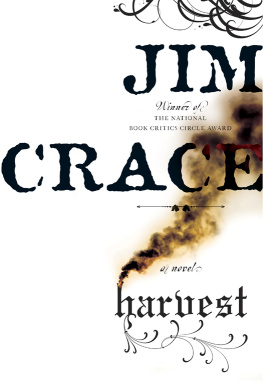


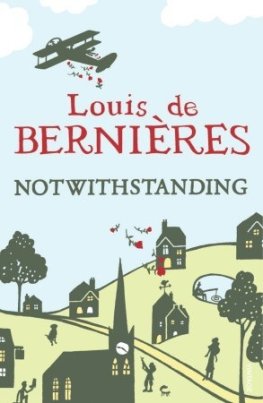
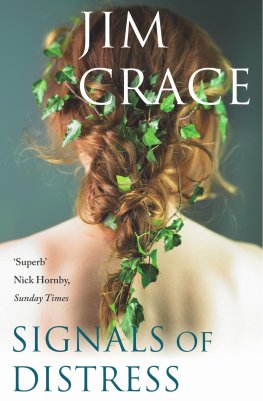
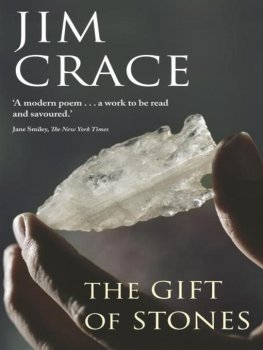
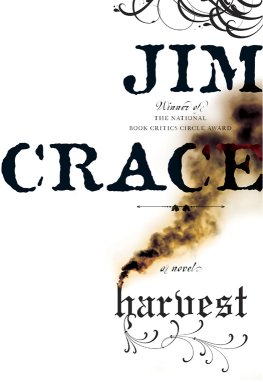
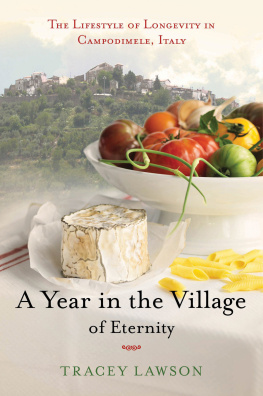

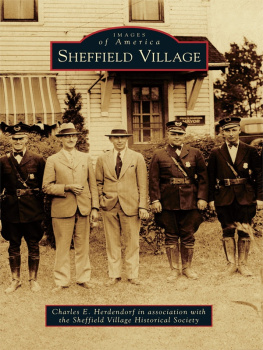



 WO TWISTS OF SMOKE AT a time of year too warm for cottage fires surprise us at first light, or they at least surprise those of us whove not been up to mischief in the dark. Our land is topped and tailed with flames. Beyond the frontier ditches of our fields and in the shelter of our woods, on common ground, where yesterday there wasnt anyone who could give rise to smoke, some newcomers, by the luster of an obliging reapers moon, have put up their hutfour rough and ready walls, a bit of roofand lit the more outlying of these fires. Their fire is damp. They will have thrown on wet greenery in order to procure the blackest plume, and thereby not be missed by us. It rises in a column that hardly bends or thins until it clears the canopies. It says, New neighbors have arrived; theyve built a place; theyve laid a hearth; they know the custom and the law. This first smoke has given them the right to stay. Well see.
WO TWISTS OF SMOKE AT a time of year too warm for cottage fires surprise us at first light, or they at least surprise those of us whove not been up to mischief in the dark. Our land is topped and tailed with flames. Beyond the frontier ditches of our fields and in the shelter of our woods, on common ground, where yesterday there wasnt anyone who could give rise to smoke, some newcomers, by the luster of an obliging reapers moon, have put up their hutfour rough and ready walls, a bit of roofand lit the more outlying of these fires. Their fire is damp. They will have thrown on wet greenery in order to procure the blackest plume, and thereby not be missed by us. It rises in a column that hardly bends or thins until it clears the canopies. It says, New neighbors have arrived; theyve built a place; theyve laid a hearth; they know the custom and the law. This first smoke has given them the right to stay. Well see.